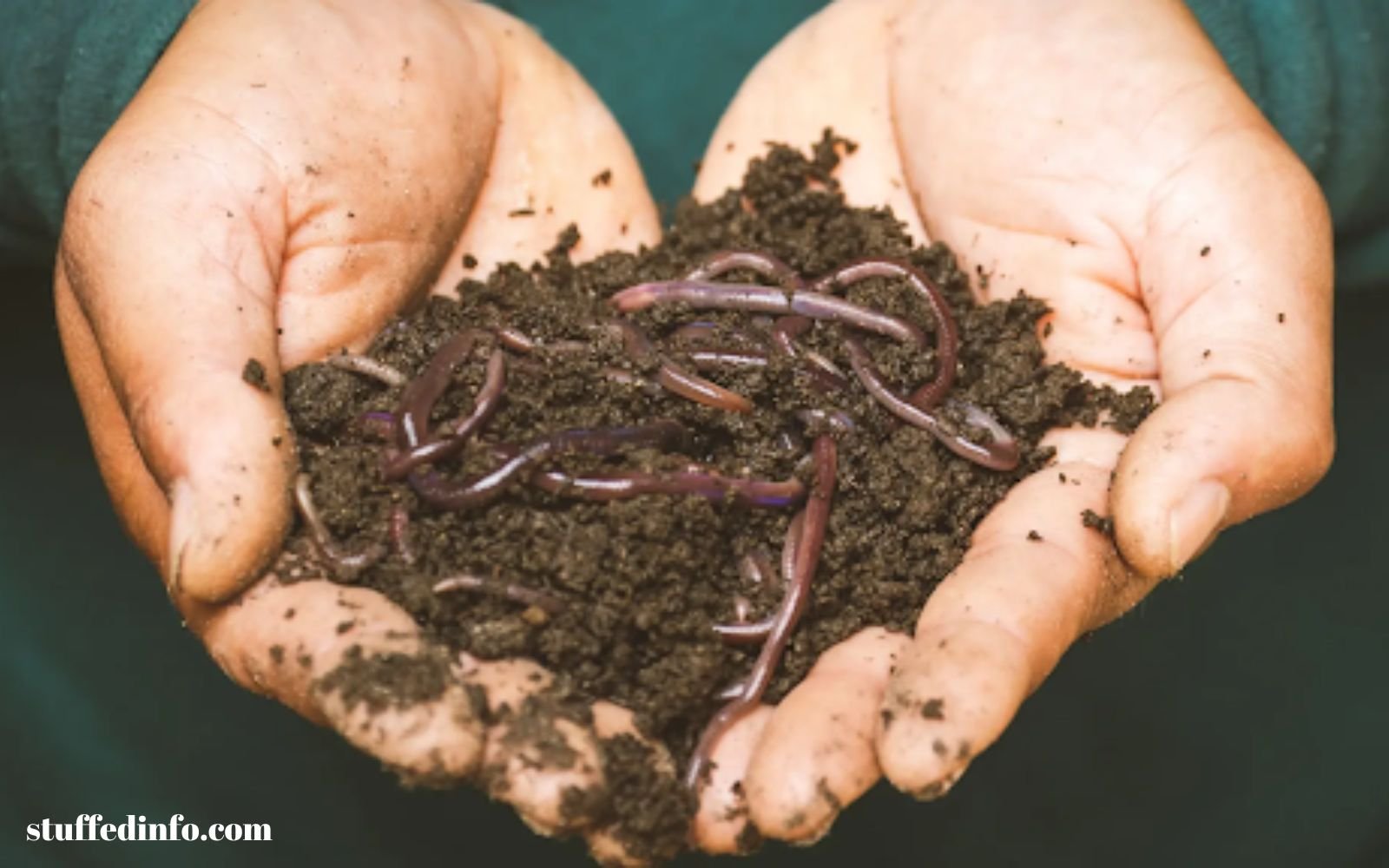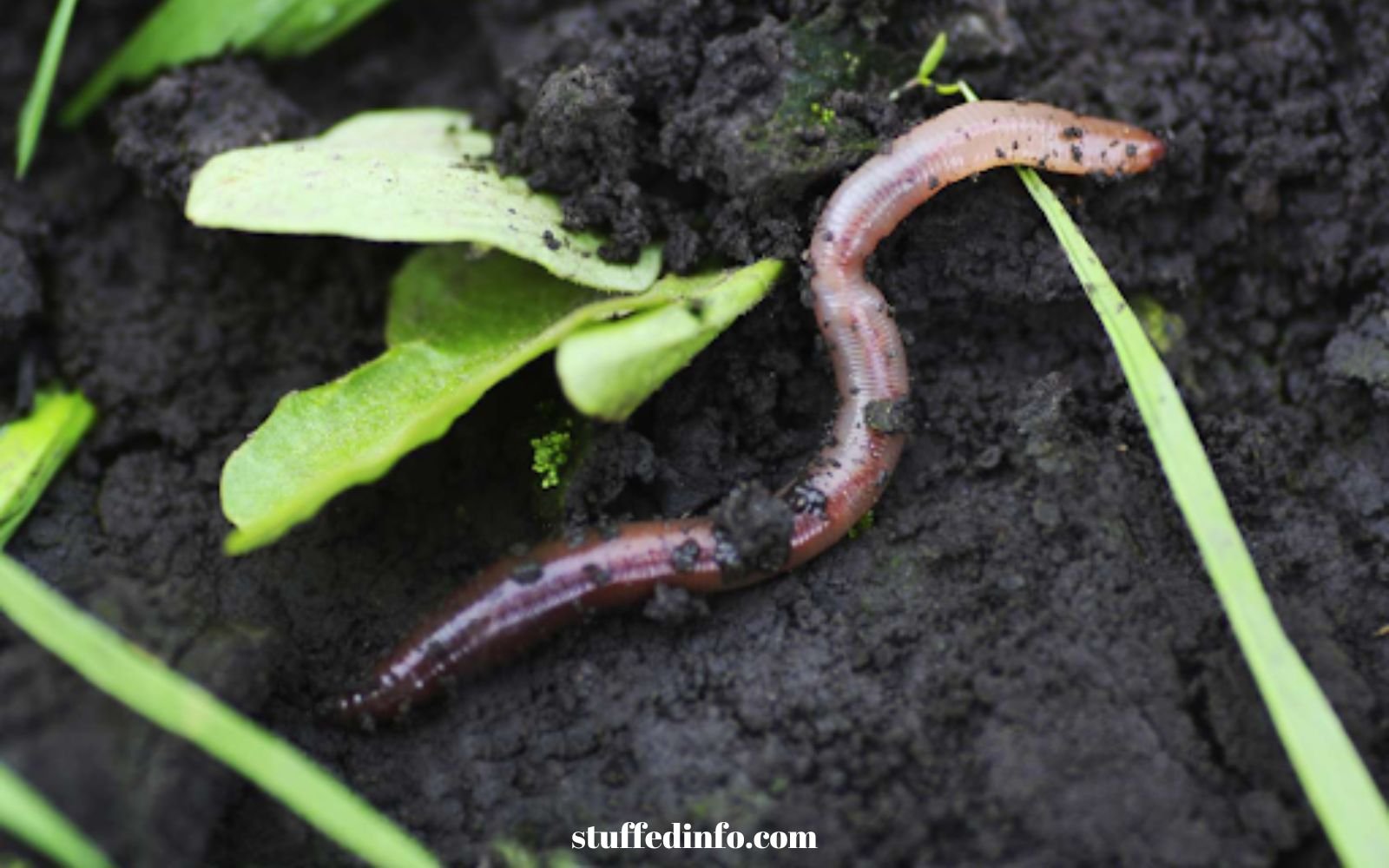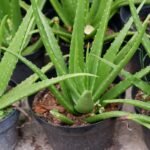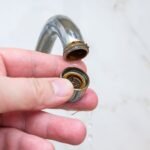It is true that after using worm fertilizer, many farmers and gardeners observe some uncertain issues in their field. Thus, it mainly includes seeds popping out of soil when worm fertilizer is given. Therefore, to make you aware of its various aspects, including “Why this occurs,” “How worms maintain the health of the soil, “How seeds sprout,” etc. we made this complete guide. Thus, read it till the end to unveil the legit pros, cons, tips, and more.
Table of Contents
ToggleRole of Worms in Soil Fertility
Before learning about the concern of seeds popping out of soil when worms fertilize, let’s understand the true role of worms in this situation. Thus, worms truly enhance soil fertility as they make room for improved water and airflow when they burrow. In addition to this, they consume dead leaves and other plant matter, converting it into soil nutrients. They play a vital role in soil fertility by improving soil structure, increasing nutrients availability, accelerating nutrient cycling in the soil, increasing soil penetrability and by increasing microbial activity.
Besides that, these worm casting also leads to a nutrient-rich compost as the end result. Hence, it provides vital nutrients that aid in plant growth which are excellent. Additionally, worm castings contain beneficial microorganisms that improve soil quality and support robust plant growth. Furthermore, by forming channels that improve air and water movement, they guarantee that plants can efficiently obtain the moisture and nutrients they require to flourish. Worms are considered ecosystem engineers, and can be valuable partners in managing ecosystem services.

Will Seeds Germinate in Worm Castings?
Yes, seeds grow effectively in worm castings, offering significant advantages for gardeners. Nutrient-rich worm castings offer the vital nitrogen, phosphate, and potassium required for strong seedling growth. In addition to improving airflow and drainage to promote root growth, they retain moisture, guaranteeing ideal germination conditions. Vermicompost, another name for worm castings, is a great addition to your seed-starting mixture. For seedlings, these nutrient-rich castings offer a mild and well-balanced source of vital nutrients.
Moreover, worm castings contain helpful bacteria that actively decompose organic debris, releasing nutrients for plants to use. Plus, worms should be added to your seed-starting mix at a ratio of 10–25% for best results as it ensures more robust seedlings and successful gardening. When growing seeds, worm castings are an excellent option because they retain moisture, provide nutrients, introduce microbes, and increase germination rates.

How Worm Fertilizer Affects Seed Germination?
So, it’s that people witness seeds popping out of soil when worm fertilizer is added, and there are a lot of reasons behind that. Therefore, to know about the same in detail, read the below-shared points:
Better soil structure: Plus, they let air in and enhance water retention. By keeping water from collecting and guaranteeing that seeds have the air they require to sprout, this produces the perfect environment for seed growth.
Improved soil moisture retention: Worm fertilizer is critical for good seed germination because it keeps soil moist for a longer period of time.
Microbial Activity: These microorganisms actively shield seedlings from dangerous diseases, improve nutrient availability for plants, and break down organic materials.
Stronger Seedings: Plants cultivated from worm fertilize grow healthier and have stronger root systems.
Along with increasing floral biomass and quantity, it can also promote the growth of roots and shoots. In negative effect particularly at greater concentrations, vermicompost (worm fertilizer) can prevent seed germination and the growth of seedlings. Both dose and genetics may have an impact.
Observing Seeds Popping Out of Soil When Worm Fertilize
When talking about observation, the process by which seeds sprout and develop is known as germination, and it is observed when seeds emerge from the soil. Initially, seeds absorb water, which triggers the activation of enzymes that convert the stored food into energy. As a result, the roots grow and a stem emerges through the soil surface. A few elements that are essential for effective germination are light, moisture, and temperature. Although the growth patterns of different seeds vary, bean and snap pea seeds are particularly dependable since they sprout quickly and vigorously, making observation simple.
Seeds popping out of soil when worms fertilize are obviously a significant matter of concern. Gardeners must follow this phenomenon in order to enhance planting techniques and guarantee healthy seedling growth.
Soil aeration: By forming air pockets while they burrow, worms efficiently aerate the soil. Compaction is greatly decreased as a result, making it easier for seeds to sprout.
Seed dormancy break: Until they come into contact with particular circumstances, some seeds stay dormant. By successfully ending dormancy and promoting seed germination, worm castings greatly improve soil quality.
Changes in soil composition: Worm castings drastically change the texture and moisture content of the soil, which invariably forces seeds to the top. Worm fertilizer disturbs buried seeds, causing them to rise to the surface where they are much more accessible.

Practical Tips for Gardeners
Thus, regardless of your level of experience, you must implement efficient gardening techniques to improve plant health and increase yields. Therefore, some of the tips and tricks that can help you in the matter of seeds popping out of soil when worm fertilize is active are as follows:
Use High-Quality Worm Castings: To optimize nutrients and promote strong seed growth, always select high-quality worm castings.
Apply Equally: Plus, to ensure that every seed receives the best possible conditions, distribute worm castings equally across the soil.
Track Soil Conditions: Evaluate soil moisture levels on a regular basis and modify your watering schedule. Both seed germination and the general health of your plants depend on regular watering.
Avoid Over-Application: To keep your soil’s balance in check, always use the prescribed amounts of worm castings.
Take Soil Testing into Account: Test your soil on a regular basis to determine its nutrient levels and make well-informed fertilization selections.
Appropriate Planting Depth: Make sure that seeds are planted at the depth that is advised for their individual requirements. This keeps them in the ground and stops them from popping out.
Steer Clear of Over-Saturation: Worm castings retain a lot of moisture, so be careful not to overwater them. Washing away the soil and creating unstable conditions will dislodge the seeds.
Conclusion
In this blog, we briefly talked about the concern of seeds popping out of soil when worm fertilizer is added. Thus, by creating nutrient-rich castings that directly boost seed germination, worms greatly improve soil health. In order to provide the best growing circumstances for their plants, farmers and gardeners must comprehend this process. I hope the page answered all your queries and guided you well in getting gardening tips.
FAQs
How does the makeup of the soil affect this phenomenon?
While thick, compacted soil successfully traps seeds down, loose, light soil is necessary to enable easy seed emergence.
How can I stop seeds from emerging from the ground?
Always use stable soil mixes and put seeds at the proper depth. For efficient seed erosion protection, use mulch.
Can seeds sprout from the ground due to the influence of animals?
Insects, birds, and squirrels can dig up seeds, which creates the impression that the seeds have just emerged from the ground.
If I notice seeds emerging from the ground, what should I do?
If you notice seeds popping out, gently press them back into the ground at the proper depth to promote good germination. Additionally, you should confirm that they are adequately covered.
What is the best way to use worm castings?
Simply plant a tiny quantity in the soil’s root zone. The nutrients then nourish the plant by leaking out with the water. Another name for this technique is “side dressing.”







